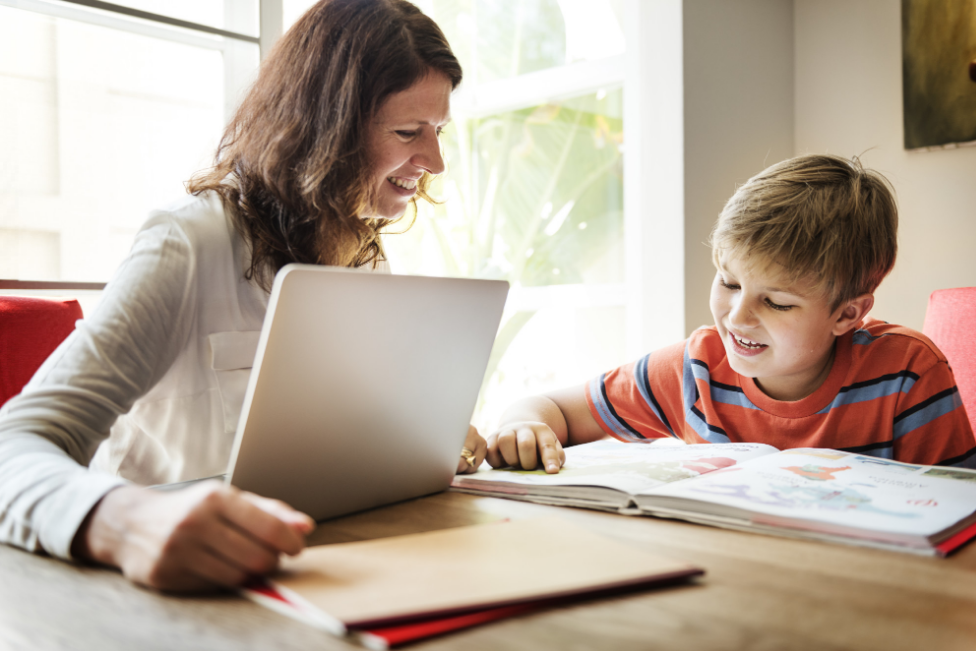The pandemic forced many families to adjust to a homeschool style of education. Distance learning became a normal alternative to the traditional classroom model.
It also forced many to come to grips with how important it is to focus on mental health as an area of education. Homeschooling helps shine a light on this as well and provides a myriad of other benefits.
Are you thinking of starting a homeschool curriculum for your child? Continue reading for an overview of the psychological effects of homeschooling and how your child might benefit from learning at home. We’ll go over four surprising effects homeschooling has on mental health.
1. Emotional Well-Being
Children have almost boundless energy. It can be difficult for kids to sit still throughout a regular classroom instruction period. A typical in-person classroom experience doesn’t allow kids to express as much physical movement throughout the day as they need.
Recess times vary from school to school, with some schools offering a meager 20 minutes per day. Homeschooling offers kids the opportunity to spend more time moving and more time outdoors. When following a homeschooled curriculum, kids are freer to roam around during the day.
The positive effects of this help with the betterment of both physical and emotional health. Movement helps with focus, attention, and working memory. By allowing kids to get up when they need to, they will be able to concentrate more. They can then find more enjoyment in the learning process.
2. Personal Learning Growth
Homeschooling is a way for students, teachers, and parents to tailor a lesson plan to a specific child. This is incredibly helpful, as not every child learns at the same speed as their peers. The individualized learning environment that it fosters helps students learn at their own pace.
It’s also good for helping kids to feel less stress. Having to adhere to a certain framework isn’t always conducive to how they learn and operate. Having children engage in lessons one-on-one takes the stress away from having to rush through memorization or digest information they might not comprehend yet.
Lesson plan accommodations let kids speak up when they might need a little more help without interrupting the learning of their peers.
3. Cultivating Community
There tends to be a misconception that homeschooled children lack social interaction, thus leading to a lack of community and social skills. This couldn’t be further from the truth. The social effects of homeschooling can translate to kids learning the ins and outs of societal structure at a young age.
Home schooling doesn’t always take place in one, isolated environment. It allows for more flexible learning environments throughout the greater community. From field trips to group outings, there are plenty of ways in which children learn social skills.
Running errands with parents can help kids engage in the wider community at large, thus learning how to become a productive member of society. In addition, kids learn social skills outside of the classroom with other activities like soccer, swimming, violin lessons, or tennis.
4. Growth and Independence
One of the long-term effects of homeschooling is related to a child’s independence. This independence might stem from a few areas.
Not having to follow a crowd of other children and learning autonomy early can be helpful as a child grows up. In addition to having a personalized learning environment, kids will feel more at ease with asking questions and learning to seek out answers in the moment.
This sort of inquiry-based learning can help kids grow their critical thinking and independence as a student in the classroom as well as a student of life.
Additional Psychological Effects of Homeschooling
It’s worth noting that the effectiveness of homeschooling will vary from household to household. When parents value the education of their children, homeschooling can offer enormous benefits.
The likelihood of peer pressure and bullying lessens in a home learning environment. Scheduled playtime with peers can be overseen to avoid negative interactions. One-on-one instruction can help kids learn from a young age how to interact with others with kindness. Other psychological effects might look like:
- Self-confidence increases
- Performance attention increases
- A sense of gratitude is cultivated
- Less stress and better self-esteem
- Family relationships fostered
- Prioritization of sleep and movement
The positive effects of homeschooling later in life can be felt as well with proper instruction and attention.
Unusual Circumstances
The benefits of homeschooling also extend to unusual circumstances. Some children need an individualized learning environment. Kids and teens who are part of a competitive sports team might require homeschooling in order to accommodate their training schedule. Perhaps they’re working in the theatre or film world and require at-home instruction to continue learning.
For kids with parents in the military, homeschooling allows kids to maintain a sense of normalcy. Rather than getting pulled from school to school, they can learn from the comfort of their home with the support of a parent.
Assigning a Grade to At-Home Learning
From personal growth to increased physical movement, the psychological effects of homeschooling are wide-reaching. The flexibility that it brings allows parents to create a schedule that works best for all involved.
Kids can take breaks when needed and learn at their own pace. Parents can cultivate lesson plans designed around how their child learns best. This sort of flexibility can help kids get excited about education and learn to love learning again.
If you’re a parent looking for a homeschool setup that will help your child thrive, feel free to browse through our Software section for more information on productivity tools!





























































